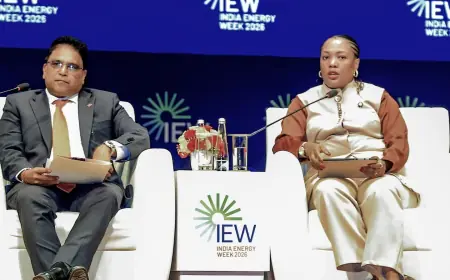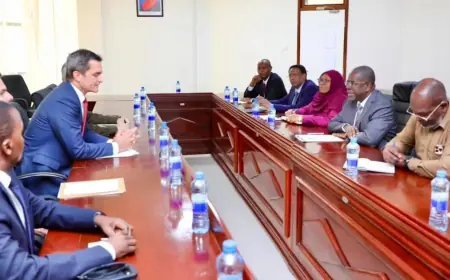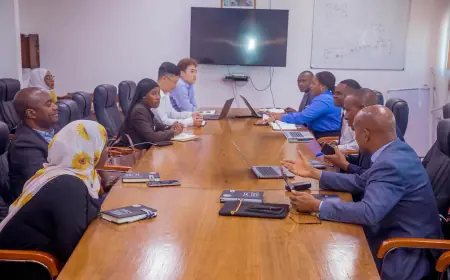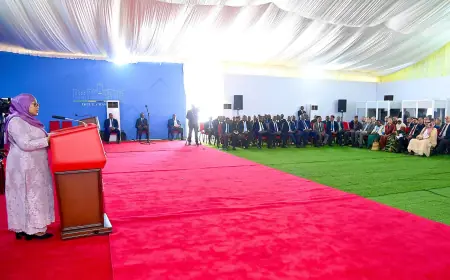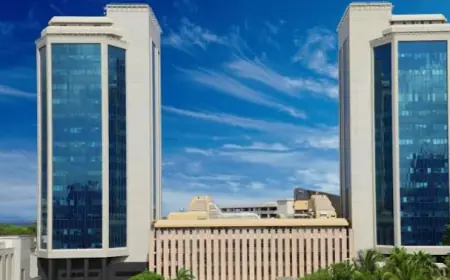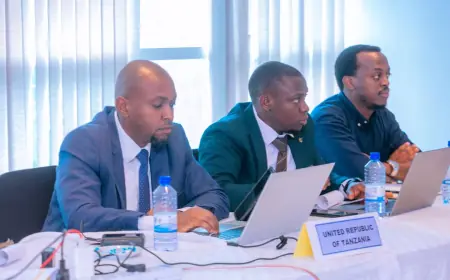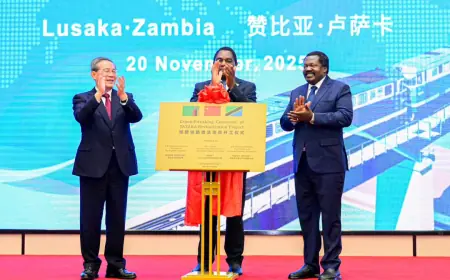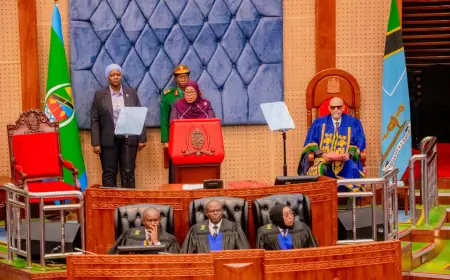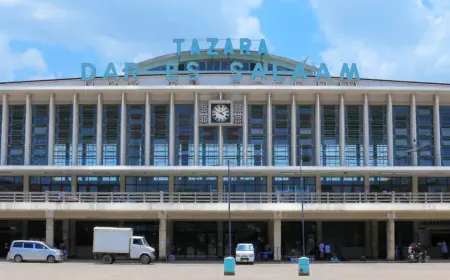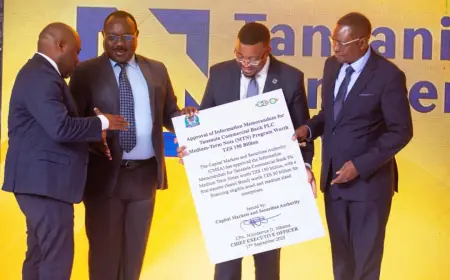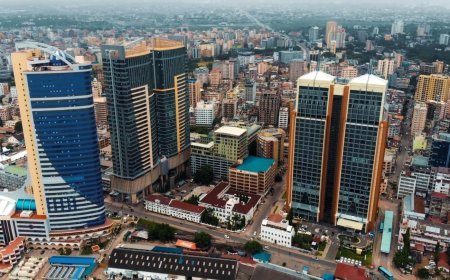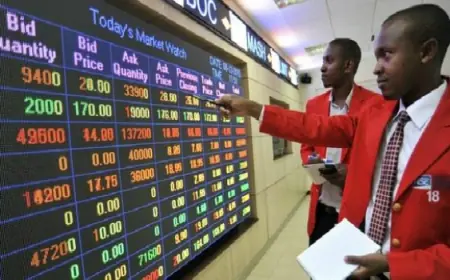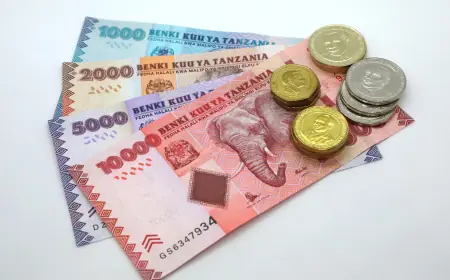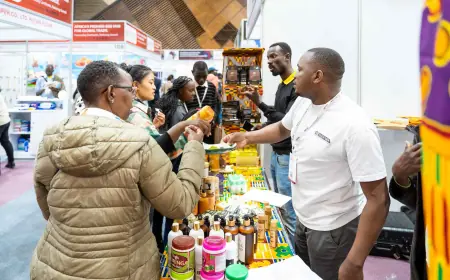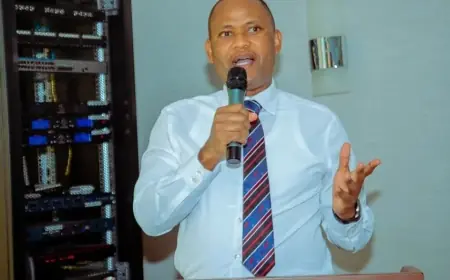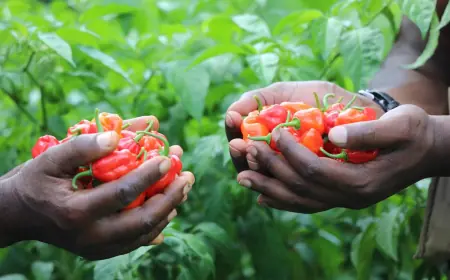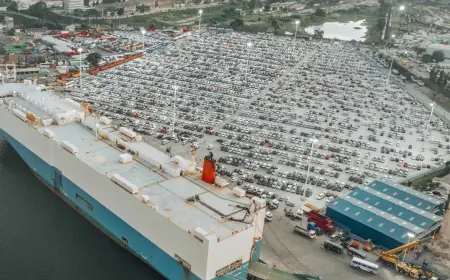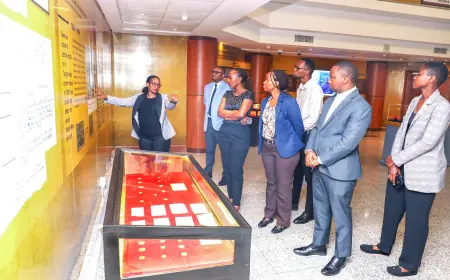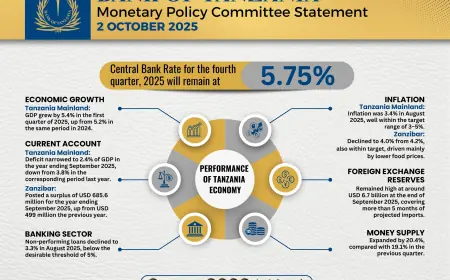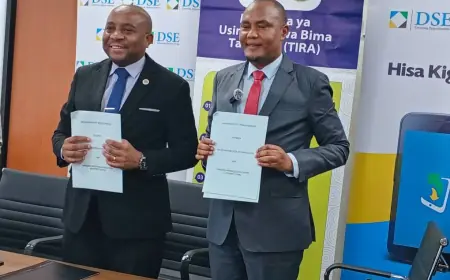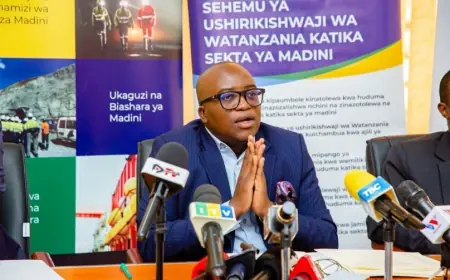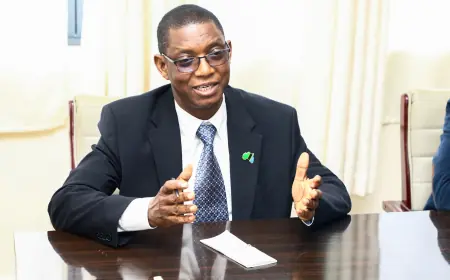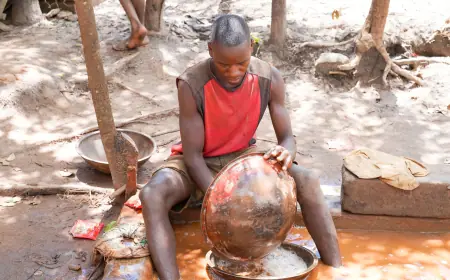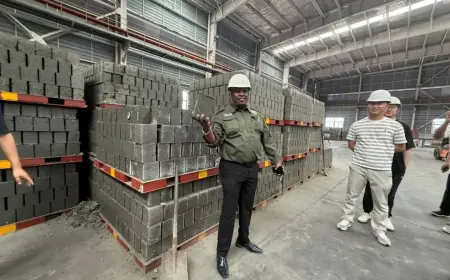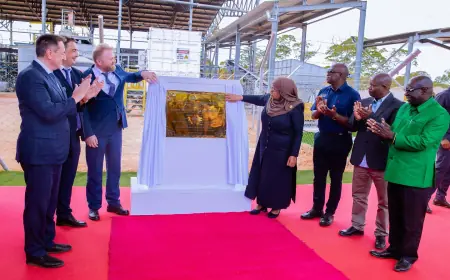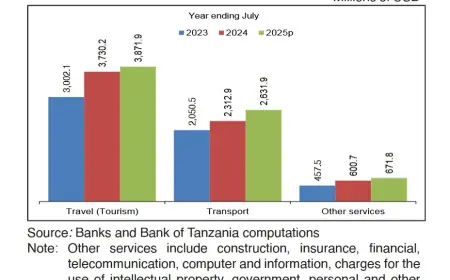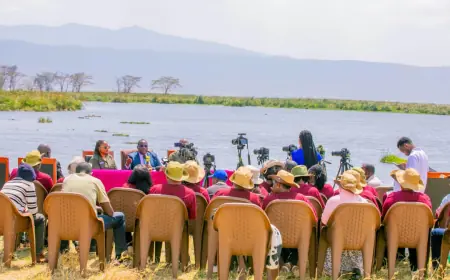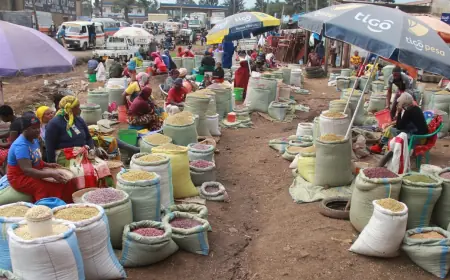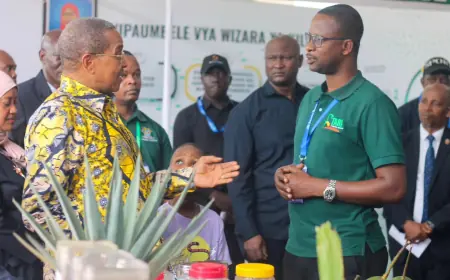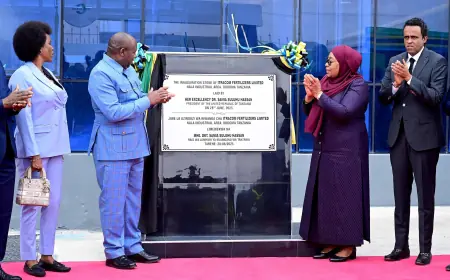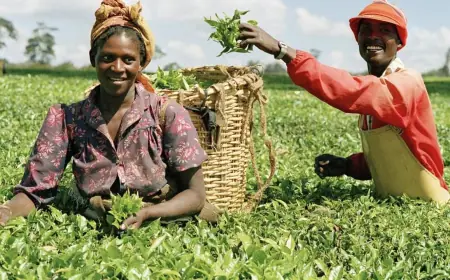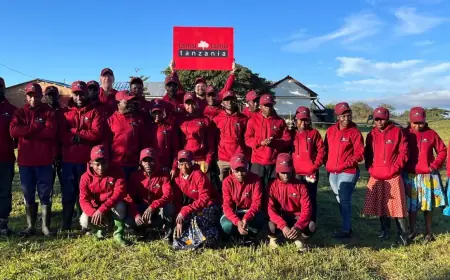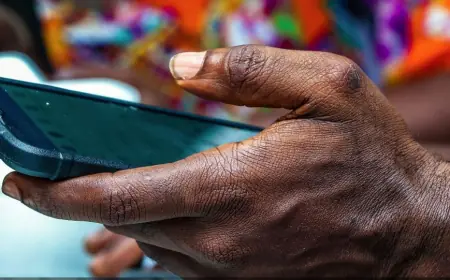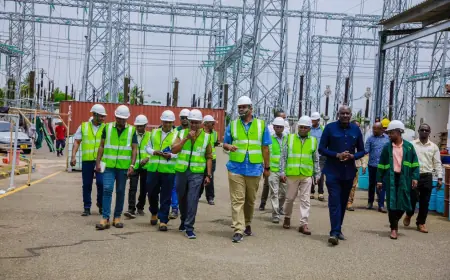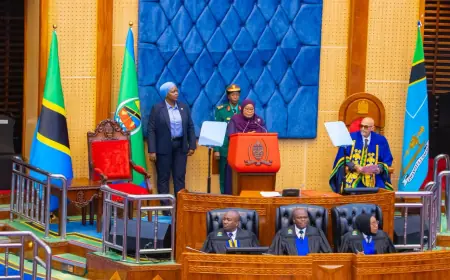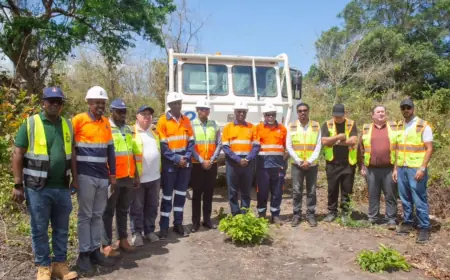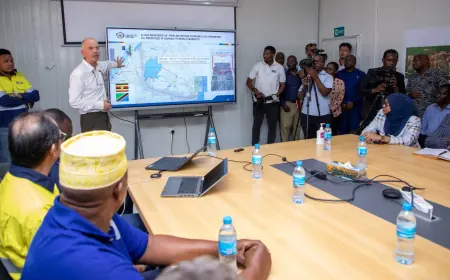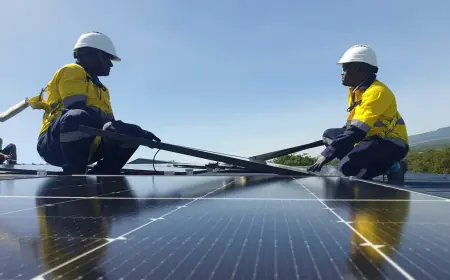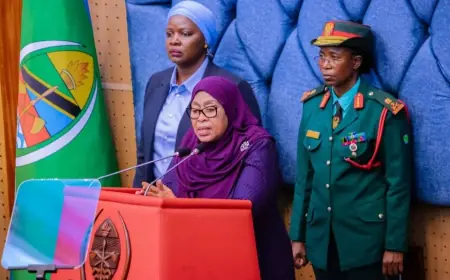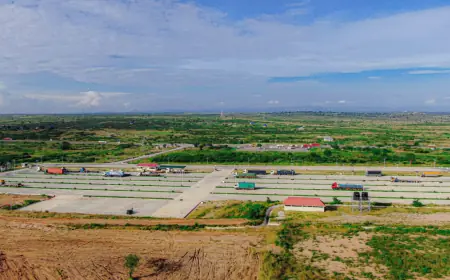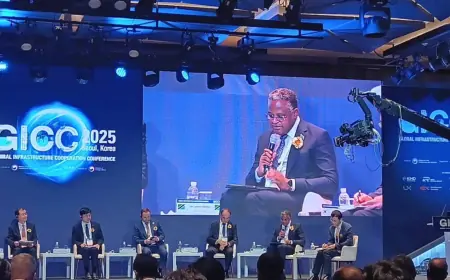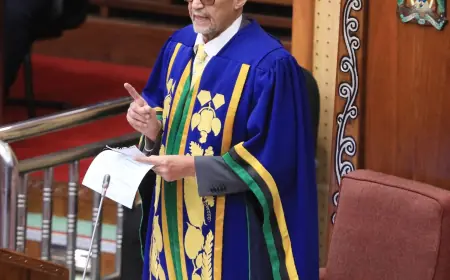Tanzania's central bank seeks Chinese help in boosting gold, foreign reserve management
The discussions come at a time when Tanzania is implementing a far-reaching strategy to strengthen its gold and foreign reserve management framework, reflecting the government’s broader economic reforms aimed at insulating the country from external shocks and currency volatility

Washington. The Governor of the Bank of Tanzania (BoT), Mr Emmanuel Tutuba, has held talks with the Chief Executive Officer of the Industrial and Commercial Bank of China (ICBC), Mr Peter Poon, and the Director of Global Market Structure, Ms Yoyo Ye, on strengthening financial cooperation between the two institutions.
One of the topic of discussions, which took place on the sidelines of the ongoing Annual Meetings of the International Monetary Fund (IMF) and the World Bank, being held in Washington from October 13 to 18, 2025 was boosting gold and foreign reserve management.
During the meeting, the two sides explored prospects for expanding investments through the purchase and storage of gold, a move expected to bolster the country’s foreign exchange reserves and reinforce financial stability.
Governor Tutuba underscored the Bank of Tanzania’s commitment to working closely with international financial institutions to strengthen the management of national reserves and promote resilience within Tanzania’s financial sector.
The discussions come at a time when Tanzania is implementing a far-reaching strategy to strengthen its gold and foreign reserve management framework, reflecting the government’s broader economic reforms aimed at insulating the country from external shocks and currency volatility.
Tanzania’s evolving gold reserve strategy
In recent years, the BoT has taken bold steps to transform the structure and composition of its reserves.
The cornerstone of this transformation is the Domestic Gold Purchase Programme, launched in September 2022, which allows the central bank to acquire refined gold directly from local producers, refineries, and dealers.
The initiative is designed to build reserves through domestic supply rather than relying solely on external borrowing or foreign inflows.
Under this programme, gold sellers are permitted to transact directly with the BoT at prevailing international market rates, provided their bullion meets the required purity and certification standards.
The move not only increases the country’s reserves but also integrates small-scale and large-scale miners into the formal economy, providing a stable domestic outlet for gold sales.
In September 2024, the government reinforced this policy by issuing a directive that requires all licensed mining companies and gold traders to reserve 20 per cent of their production for sale to the Bank of Tanzania.
The measure, which came into effect on October 1, 2024, ensures a consistent supply of gold to the central bank while supporting the formalisation of the mining sector.
To guarantee quality and traceability, the gold purchased by the BoT is processed through two accredited domestic refineries, Eye of Africa Ltd in Dodoma and Mwanza Precious Metals Refinery Ltd in Mwanza, both of which operate under government supervision.
According to official data, between October 2024 and June 2025, the central bank purchased 5.02 tonnes of pure gold, valued at approximately $554 million, surpassing its initial annual target of $350 million.
This expansion has significantly strengthened Tanzania’s external reserves, lifting the total foreign exchange reserve to $6,393.8 million in August 2025, up from $5,379.7 million in August 2024.
The gold purchase initiative has also taken on a monetary policy dimension, with the BoT using it as a liquidity management tool alongside traditional open market operations such as foreign exchange interventions and reverse repos.
By doing so, the central bank aims to maintain stability in interbank interest rates while supporting the shilling’s value against major currencies.
Strategic rationale for gold accumulation
Gold accumulation is central to Tanzania’s efforts to diversify its foreign reserve portfolio, reduce dependence on external borrowing, and mitigate vulnerability to foreign exchange shocks.
Gold, unlike fiat currencies, is not tied to the policy decisions of foreign governments, making it a strategic store of value during global economic uncertainty.
The approach aligns with a broader global trend among emerging economies, particularly in Africa, where central banks are turning to precious metals as a hedge against inflation, currency depreciation, and rising global interest rates.
In Tanzania’s case, the accumulation of gold serves multiple objectives that include stabilising the shilling by providing a non-currency reserve buffer; and reducing exposure to exchange-rate volatility and dollar shortages.
Other objectives are enhancing investor confidence through evidence of strengthened macroeconomic fundamentals; and supporting domestic mining and refining industries, ensuring that a portion of national mineral wealth remains within the country.
Challenges facing the strategy
While the policy has yielded positive results, experts caution that it is not without risks.
The first is price volatility, as fluctuations in global gold prices can reduce the value of reserves.
A report by BMI/Fitch Ratings in July 2025 warned that African central banks expanding their gold holdings—including Tanzania—could face a “dual hit” in the event of a price downturn: a reduction in export earnings and a simultaneous devaluation of existing gold reserves.
Second, liquidity risk remains a concern, as gold is less liquid compared to foreign currency assets.
In times of balance-of-payments stress, converting large quantities of gold into hard currency can prove difficult and costly.
Third, refinery and accreditation challenges persist.
Tanzania’s two main refineries are yet to secure full accreditation from the London Bullion Market Association (LBMA), a critical step towards enabling the gold’s recognition and tradability on international markets.
Without such certification, the central bank faces limitations in leveraging its holdings for global transactions.
Additionally, there are supply and quality constraints stemming from the artisanal and small-scale mining subsector, which, despite its importance, struggles with inconsistent production, weak regulation, and limited access to modern refining technology.
Chinese collaboration as a strategic partnership
Against this backdrop, Governor Tutuba’s meeting with ICBC executives takes on heightened significance.
China, as the world’s largest gold producer and consumer, has developed extensive expertise in reserve diversification, bullion market operations, and gold-backed financing instruments.
The collaboration between BoT and ICBC could help Tanzania address critical gaps in its gold reserve strategy in several ways.
Technical assistance in modern reserve management, portfolio diversification, and risk hedging.
Co-investment opportunities in gold storage and vault infrastructure to improve security and transparency.
Access to gold swap and lending arrangements, allowing the BoT to monetise part of its gold holdings when foreign exchange liquidity is tight.
Support in refining and certification, including possible technology transfer and partnerships that could help Tanzanian refineries achieve LBMA accreditation.
Credit lines backed by gold reserves, which could enhance confidence in the country’s external position and financial system stability.
By deepening ties with a leading Chinese financial institution, Tanzania seeks to complement its reserve diversification strategy with advanced management systems and broader access to global bullion markets.
Broader significance of the Washington meetings
Governor Tutuba is attending the IMF–World Bank Annual Meetings, held under the theme Foundations of Growth and Employment, which bring together central bank governors, finance ministers, development partners, private sector leaders, and academics to deliberate on global economic challenges, financial stability, and inclusive growth.
On the sidelines, the BoT governor was also expected to hold discussions with several development partners, including IMF Executive Director Mr Adran Ubisse and IMF Director for the African Department Mr Abebe Selassie, to review Tanzania’s macroeconomic performance and explore opportunities for technical and financial collaboration.
The annual gatherings serve as a platform for countries to exchange policy experiences and forge partnerships aimed at strengthening economic resilience, deepening financial systems, and fostering sustainable development.
What's Your Reaction?
 Like
1
Like
1
 Dislike
0
Dislike
0
 Love
0
Love
0
 Funny
0
Funny
0
 Angry
0
Angry
0
 Sad
0
Sad
0
 Wow
0
Wow
0
